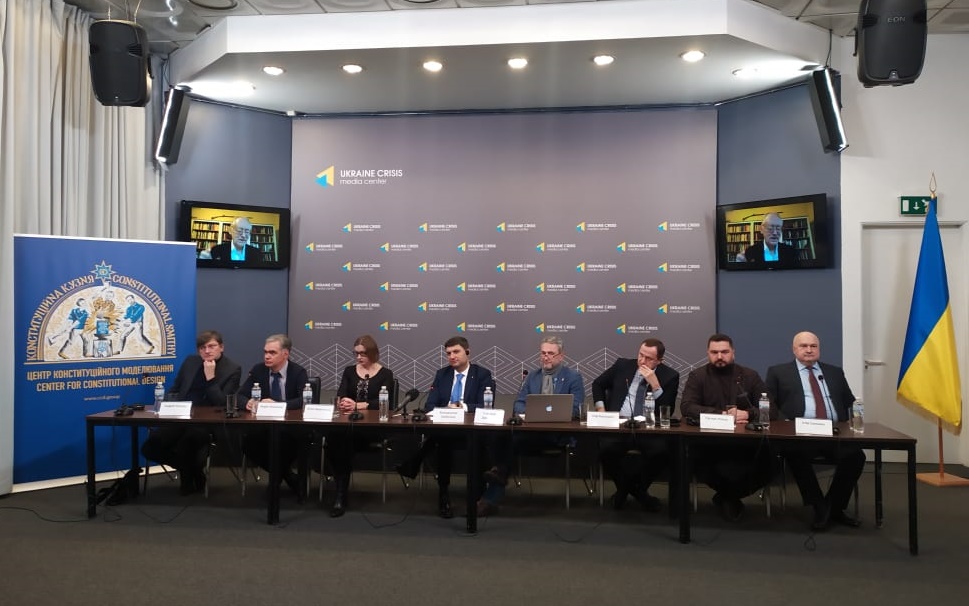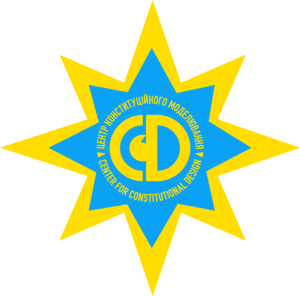Experts, politicians discuss launching an inclusive process for the future constitutional redesign of the Ukrainian state
29

On Dec. 1, the Ukraine Crisis Media Center hosted a public discussion on “Is It Time for a Constitutional Convention in Ukraine?” organized by the Center for Constitutional Design (CCD).
Politicians, constitutionalism experts, and representatives of civil society participated in the event dedicated to the 30th anniversary of the nationwide referendum that proclaimed Ukraine’s independence. The speakers included CCD Chairman of the Board Gennadiy Druzenko (who also moderated the discussion), head of the Indiana University Center for Constitutional Democracy Prof. David Williams (online), Ukrainian Strategy party leader Volodymyr Groysman, Center of Policy and Legal Reform Chairman of the Board Ihor Koliushko, Strength and Honor party leader Ihor Smeshko, head of constitutional programs at the Center of Policy and Legal Reform Yulia Kyrychenko, public policy expert, PGR Consulting Group LLC Managing Partner Ruslan Rokhov, lawyer, public law and human rights expert Borys Malyshev, and lawyer, former member of the Central Election Commission of Ukraine Andriy Mahera. (See video from the event at the bottom of this page.)
Following the discussion, the CCD Board adopted a statement, of which text is provided below:
STATEMENT
by the Center for Constitutional Design
in the wake of the public discussion
“Is It Time for a Constitutional Convention in Ukraine?”
Noting
- the existence of a systemic crisis in Ukraine;
- that the current Constitution of Ukraine, adopted 25 years ago, has, in fact, lost its functions of the main regulator of social relations and a safeguard against arbitrary rule by the political race winners;
- that it is exactly the lack of effective constitutional safeguards that induces Ukrainian citizens to invoke, time and again, their right to rebel as the last resort for protection against the arbitrary rule; and
- the lack of constitutional and legal culture as well as the recurrent demand for paternalism in Ukrainian society,
we are convinced that
- the systemic problems of Ukrainian statehood cannot be solved by simple replacement of government; and
- before going to the next elections, it would be worth initiating a broad public discussion on a proper constitutional architecture of the Ukrainian state in order to determine the mutual expectations and obligations of both government and society and, using these as a framework, develop a “design specification” for efficient configuration of authorities as such.
Taking into account the above problems, we have decided:
- to create a permanent platform based on the Center for Constitutional Design for consultations of politicians and experts on a future constitutional redesign of the Ukrainian state;
- to invite political leaders, public opinion leaders, experts, and scholars to engage in this initiative; and
- to call on the media to engage in promoting the idea of an inclusive constitutional process that aims at discussing and concluding a new social contract to be laid in the foundations of a new constitution of Ukraine.
